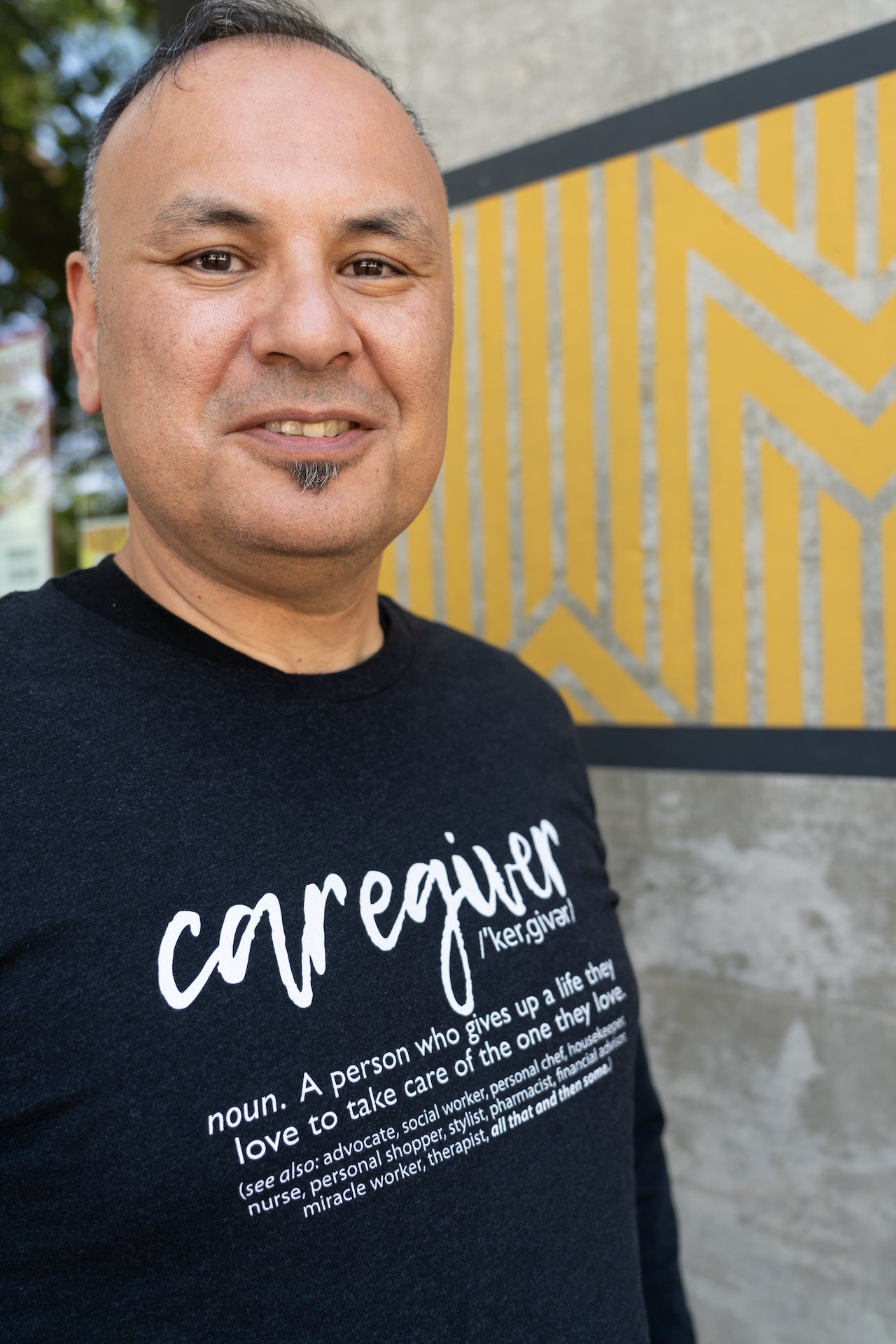Who cares for the caregiver?

The ASU CARES study is seeking participants caring for a loved one living with Alzheimer's or related dementias. Image courtesy Canva
A few years after his father was diagnosed with Alzheimer’s disease, Carlos Olivas reached his breaking point. He moved back home to Sacramento, California, to live with his dad and care for him full time on his own.
“Things got really rough between my dad and me, and I kind of lost it,” Olivas said.
Olivas needed additional assistance, so he called the Alzheimer’s Association’s 1-800 number seeking information to help his dad. He got that and much more. He was ultimately able to refocus and see how much he needed to care for himself, too. It’s not an exaggeration to say that one phone call ended up being life-altering for both Olivas and his father.
“The person I talked to said, 'Well, how are you doing?' And that’s when I opened up and found a listening ear that understood my position, and from there I ended up joining a support group,” Olivas said.
According to the Caregiving in the U.S. 2020 study from the National Alliance for Caregiving and AARP, about one in five Americans is an unpaid family caregiver. In case you’re wondering, that adds up to an estimated 53 million people.
The Centers for Disease Control and Prevention calls these caregivers the backbone of long-term, in-home care, noting that while this role can be rewarding, it can also lead to negative health consequences.
“Generally, and especially for those caregiving pretty much full time for a family member or friend with Alzheimer’s disease, the levels of emotional and physical stress and the strain on the relationship is very high. No matter how much they love the person they are caring for, it takes an extraordinary toll,” said Linda Larkey, a faculty member and a researcher in Arizona State University's Edson College of Nursing and Health Innovation.
Larkey is the co-principal investigator, along with Dara James, a postdoctoral scholar, who earned her PhD in nursing and health care innovation, for the ASU CARES study. They are actively recruiting participants 18 and older who are caring for a family member or friend living with Alzheimer’s, or related dementias, for their ongoing research.
“We are examining the use of practices that potentially help caregivers recharge physically and emotionally in just a few minutes every day, without taking time away from their caregiving,” Larkey said. “Our study is one of a series that has been implemented by research faculty in Edson College as we build programs for dementia prevention, support and caregivers.”
Carlos Olivas. Photo by Roberta Alvarado
As part of his search to find resources and support, Olivas came across an earlier study from the college. When asked why it appealed to him, he was candid and said there were a couple of reasons, the first being his own health.
“I read a statistic from the Alzheimer’s Association that said 67% of caregivers caring for their loved ones pass away before their loved ones and that scared the s--- out of me,” Olivas said. “My health already wasn’t great, I was overweight, and that compounded with the stress and strain of caregiving, I felt I was going down that path and I needed to change.”
Additionally, Olivas said as a person of color and a male, being represented in studies like this was important to him so that science will “help other people just like me.” He sees research studies as a community-based resource and a way to pay it forward to future caregivers.
If current estimates hold, there will soon be a sharp increase in the number of people stepping into roles to care for America’s aging population.
“This is a rapidly growing sector of our population, family members suddenly needing to give up most of what their life was about, to care for a loved one in this context. It creates a challenge to the well-being and quality of life and relationships for the whole family,” Larkey said.
The practices Olivas picked up during his participation in a previous Edson College study have now become habits that have made a big difference in how he goes about his day. For example, he’s started prioritizing self-care and focusing on something other than caregiving for a bit. Another habit involves being more present to recognize the stresses and strains he is experiencing and knowing when to reach out to his care network for support.
“People need to understand that there is help and support out there, but you have to work at it. I’m still working on myself to improve my health because being healthy helps me be a better caregiver,” he said.
To learn more about ASU CARES, email the study team at edsonCARES@asu.edu.
More Health and medicine

New study reveals high levels of toxins in seized cannabis from Arizona and California
A recent study conducted by researchers from Arizona State University has uncovered alarming levels of Fusarium mycotoxins in…

PhD student builds bridges with construction industry to prevent heat-related illnesses
It is no secret that Arizona State University has innovative researchers working to help solve everyday problems.According to a…

Working to cure cancer in our lifetime
What if we could cure cancer, or come close, in our lifetime?That’s a goal that researchers at Arizona State University’s…


